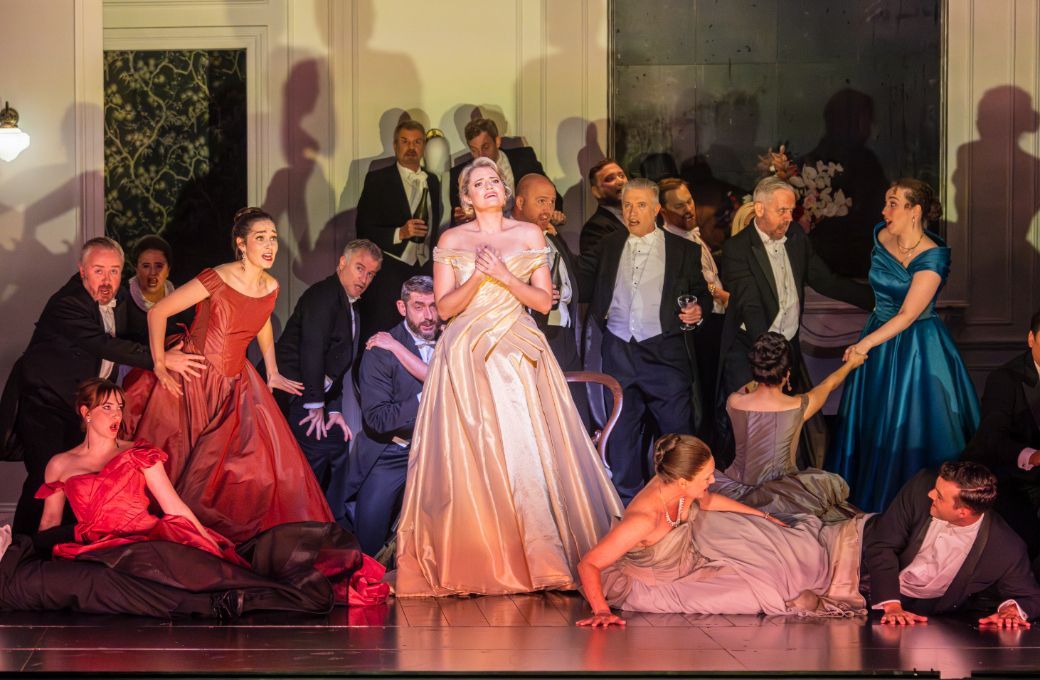Is there any doubt that La traviata is one of the most successful operas ever written? My memories go back to 1960 when the Rome Opera production was unforgettable for a schoolboy mostly for the feat of 30 waiters popping champagne corks simultaneously. Today, getting the emotions on stage to match those rising from the pit matters a whole lot more – and Sarah Giles’s production for the Australian Opera Conference, so successful that Opera Australia is running it two years in succession, undoubtedly pops that cork.

Much of that achievement is attributable to Samantha Clarke’s remarkable performance as Violetta, the ‘fallen woman’ of the title. The UK-trained Aussie’s substantial voice and fluid grace were a match for the emotional demands on her acting – from soul-searching introspection to passionate joy; to the tears engendered by her duet with Germont, to her quietly dying assertion that she’d become an angel in heaven.
Not that such a fate was predictable from an opening scene where Violetta is tidying herself up and dressing following sex in a bedroom beside her own raucous party. It’s a striking start by Giles to capture the Parisian morality of the day. And she matches it with an ending where Violetta’s final lines are sung by her spirit physically departing her consumptive body.
Of course, Violetta requires an Alfredo who can turn her from her courtesan life. And in the boyish, almost boisterous Ji-Min Park, Clarke was her match. From their incompatible views of love to the heart-breaking puppy-love exchanges with perfectly timed rubatos on either side of that bedroom wall, the truth of their relationship quickly emerged. Park could then play moral hero, the cad rejecting her and the optimistic support in their folie à deux duet dreaming of her survival at the end – with vocal range to match.
The staging with a bedroom to one side is brilliant for moving us swiftly from Acts1 to 2, but it does cramp the parties and the chorus. Mind you the OA chorus can rush chaotically on to their remaining two-thirds stage and turn on mellifluous singing within seconds. But the great coming-to-an-understanding ensemble led by Violetta, Alfredo and Germont which opens with her pleading, “Alfredo, Alfredo di questo core” got a bit lost in the crowd. This was a rare failure in this production, although many will have found the walk-on silhouettes of the characters Jose Carbo’s Germont was singing about so implacably, as he seeks to persuade Violetta to desert his son, a silly distraction from a moving performance.
In the pit, Johannes Fritsch lead the OA Orchestra impeccably – always allowing the singers their heads. And when Alfredo’s drinking song came back in the final act on Huy-Nguyen Bai’s solo violin, its mournful tones movingly foretold Violetta’s doom, so well achieved by Giles.
Despite this tragedy – or was it because of it? – a standing ovation greeted opening night. And Ji-Min Park’s boyish glee in response perhaps reflected his pleasure in shaping up as one of the many Alfredos that the peerless Samantha Clarke has had to learn to love around Australia.


